|
9/13/2022 Communicating Like Chrysostom: Growing Your Skills in Speaking for the New EvangelizationRead Now
September 13th is the feast day of St. John Chrysostom (c. 349-407), one of the most celebrated Fathers of the Early Church. Born in Antioch, John Chrysostom chose a simple life as desert monk, but was kidnapped and forcibly made the Archbishop of Constantinople, where he spent much of his life fighting against corruption— especially on behalf of the poor and widows.
John earned the nickname Chrysostom—Greek for “golden-mouthed”—based on his reputation for eloquent speaking and skills in public preaching, which converted the hearts of many listeners. John Chrysostom exemplifies the value of good communication as an element of effective evangelization. Whether you’re a ham or have speech anxiety like most, at some point or another, you might be called upon to speak publicly—especially if you work or volunteer in the church. Whether you are preparing to deliver a parish talk, a personal witness, or other public presentation, no matter the size, spending some effort crafting your communication skills can be a great benefit to sharing your faith. Know your Who, What, and Why St. Paul, a man who described his call “to preach the gospel, and not with the wisdom of human eloquence,” (1 Cor 1:17), nevertheless frequently found himself speaking in front of crowds as part of his mission as an Apostle and disciple of Christ. Paul speaks very differently to mature Christians and the pagans of Athens (Acts 17:22-34). The audience (“who”) shapes his main points and examples (“what”) and the purpose for speaking to them (“why). Prepare by creating an outline that clearly and succinctly states your “who, what, and why.” Write it down and refer back to it throughout the composition stage. A Little Humiliation Goes a Long Way In seminary homiletics courses, preachers-in-training are frequently subjected to the sometimes humiliating exercise of having their practice homilies recorded. They then watch the playback to evaluate their delivery. In some form or another, that can help anybody. It’s probably going to hurt … but you actually get used to it over time and can learn a great deal throughout this process. Practice in front of somebody. (If you’re too embarrassed at first, use your dog, cat, or an inanimate object.) Exercises like these are designed to help public speakers become more self-aware, not self-conscious. People Watch Pay close attention to your favorite speakers, teachers, or preachers and try to articulate precisely what makes them engaging and unique—not just their content, but things like timing, rhythm, their order of argument, when and when not to use humor, etc. Pope St. John Paul II and Archbishop Fulton J. Sheen were masters at this. Be Yourself As you reflect on how you speak, name gifts and qualities that others identify about your particular style. Develop those. Remember, we are not all called to be rhetoricians and orators, or even great speakers, but faithful communicators of the Gospel. Not all, St. Paul says, are even called to be preachers or teachers (cf. Ephesians 4:11). To advance his kingdom, God has entrusted each of us with a message and a mission and nevertheless promises to “equip the holy ones for the work of ministry, for building up the body of Christ” (Eph 4:12). St. John Chrysostom, Pray for us! **This post was originally published on 9/13/2016**
0 Comments
6/21/2022 Part Three: Fully Initiated- Learning and Living our Faith through the Order of Christian Initiation of AdultsRead NowIn this third and final part to this Blog series (See Part One and Part Two), I will discuss the final stages of OCIA (Order of Christian Initiation of Adults) and how the shifted paradigm I’ve been describing has helped us foster a mentality of full initiation—initiation through the sacraments into the Parish Community and Universal Church—as the true goal of becoming Catholic. I also want to conclude with a heartbreaking but redemptive story of what this year leading our new Catholics into the Church has meant to me. Stage Three: The Period of Purification and Enlightenment The transition from Stage Two into Stage Three is marked by a special liturgy at the cathedral known as the Rite of Election. The candidates/catechumens are now referred to as “the Elect.” The Period of Purification and Enlightenment, the final preparatory phase leading up to the celebration of the Sacrament of Initiation at the Easter Vigil, coincides with the Lenten Season and focuses on penance—Prayer, Fasting, and Almsgiving—that provides the necessary spiritual and moral formation to worthily enter into full communion with the Catholic Church. Recall that in Stage One (Evangelization/Precatechumenate) we met each week in class and in Stage Two (Catechumenate) we did not, and instead prescribed various active “missions” to be completed by the candidate/catechumen and their companion/mentor. Our approach to the Period of Purification and Enlightenment is done as a combination of the previous two stages. That is, we begin to meet again each Monday evening to cover topics like 1) What is the Sacrament of Penance and Anointing? What is Catholic Morality? What is Catholic Social Teaching?, but I also give a new set of “Missions” for the candidate/sponsor as well. This year they included:
This year we had folks read things like C.S. Lewis’ The Screwtape Letters, Fulton Sheen’s The World’s First Love, Dorothy Day’s The Long Loneliness, Pope Francis’ Laudato Si, and then share an insight with the group. We also took another Lenten Pilgrimage Day (this time at the Franciscan Monastery of the Holy Land and National Shrine of the Immaculate Conception in Washington, DC). By the end of Stage Three, participants have gotten a pretty good faith workout! They have experienced first-hand enough of the Catholic faith—its liturgy, prayer, sacred places, works of mercy and charity—to make a well-formed decision to enter into full communion at Easter. And it is with Easter joy that Mother Church receives them and we gain new brothers and sisters in Christ. The Easter Fire and Paschal Candle symbolizes the Great Light of Christ’s Resurrection, the light that each of us has received to bring His radiant joy and warmth into an often dark and cold world. Stage Four: The Period of Mystagogy We cannot forget the fourth and final stage of OCIA, the Period of Mystagogy, which does not signify an end but another beginning. Our Mystagogy sessions further introduce three themes: 1) Mystagogy, 2) Ministry, and 3) Mission. We look back (on the sacraments received) in order to look forward-- How does this grace send me forth to build up the Body of Christ (Ministry) and share the Good News (Mission)? In other words, faith spreads and grows one way only, from Light to Light. Conclusion The last story I want to share is not a “success” story that somehow proves the effectiveness of a new strategy or paradigm. It simply tells the relentless love of Christ, the power and working of the Holy Spirit, and the beautiful communion of belonging the Church offers in the midst of the pain of our shared journey of faith. It’s not a story I would have hoped to tell, but it tells me there is always reason for hope. During Stage Two (the Catechumenate), the candidate and their sponsor gradually read through the entire Gospel of Matthew. One day one of the sponsors, a young man named Kevin (we’re actually the same age), asked to come see me at the parish office. When he came in, he began to describe what can only be described as a great conversion in his life (he had a challenging past) as he read the Conversion of Matthew story (Matt 9:9-13). While he was supposedly being a mentor and guide for the catechumen, it was incredible to see how being a sponsor, which made him get back to coming to Mass each week and reading the Gospel himself, touched off something profound and life-changing. He met the Lord in a new way, returned to the sacraments, and set about his continued conversion. The Easter Vigil for him and his companion (and new Catholic) was an occasion for joy I won’t forget. A couple weeks after the Easter Vigil there was an accident at Kevin’s work, a machinery explosion that resulted in him suffering extreme burns and internal trauma. Some other priests and I were able to offer the Anointing of the Sick in the hospital. For three weeks he fought for his life, undergoing multiple critical surgeries, until the Lord relieved him of his suffering and called him home. I had the honor of presiding his funeral, the largest I’ve ever been involved in. I knew the “missions” he had done with his companion, that he went to Mass, read the Scriptures and the Screwtape Letters, prayed the Rosary, toured our cathedral, and more. For someone who had been through a lot in life already, it leaves me speechless still to witness how in that relatively short period of time leading up to a tragic event that no one could have predicted, this “modern-day St. Matthew” found reconciliation with the Lord and passed on his faith to another in the time he was given. I pray he has now moved on to that truly final “stage” of our Christian pilgrimage towards full communion in Christ, from this dim earthly light below to that blessed and eternal light of heaven. This is a story of belonging, what all of our ministries should be about. 5/10/2022 Part Two: Fully Initiated- Learning and Living our Faith through the Order of Christian Initiation of Adults (OCIA)Read NowI shared in Part One about the need for our Church’s pathway for those desiring to become Catholic, officially called the Order of Christian Initiation of Adults (OCIA), to foster more than head knowledge of the faith and instead cultivate our call to communion through real-life holy habits and spiritual practices. Easier said than done! In this post, I’d like to share a few ways we set out to alter the typical “classroom” paradigm—meeting for classroom teaching/discussion one night a week for six to nine months—by “pastorally engineering” a process aimed at personal belonging in the parish community and steady immersion into the mystery of faith through first-hand experience. As a matter of fact, that is what the liturgical text (the Order of Christian Initiation of Adults) is all about. Putting the words into relevant practice takes both fidelity and creativity. I don’t claim any “unprecedented” results. What I’m sharing is simply our “work-in-progress” attempts to try something different and maybe raise some discussion in your own contexts. If the OCIA process is new or unfamiliar, I hope this also gives you a better idea of what’s involved. Stage One: The Period of Evangelization and Inquiry (Pre-Catechumenate) People inquire about becoming Catholic at all points in the year (some parish OCIA programs meet all year round, but we don’t). I meet with them, listen to their story, share basic information about the OCIA process, and encourage them to get involved in parish life if they aren’t already. I then ask them to do two things to prepare for when our formal OCIA program begins (in October): 1) If not already, simply begin attending Mass every Sunday, and 2) Read the Gospel of Mark from beginning to end. In October, when OCIA sessions officially begin, we have class every Monday night up until the beginning of Advent. This Period (Evangelization and Inquiry) is entirely about the proclamation of the Kerygma and the basics of Christianity, no matter what stage or knowledge of faith. (Of course, each class goes into more depth and discussion as you would imagine). The only readings I ask during this period come from the Bible- by this point (over two months), they will have read the entire Gospel of Matthew and other important passages of the Old Testament and New Testament. Each class includes teaching and doing a form of prayer together (e.g., Sign of the Cross, Examen, Lectio Divina, The Lord’s Prayer, etc.). We can’t just tell people to pray- we have to teach them by doing it with them! Each Session is focused on a single question: Week 1) Who is God? Week 2) Who am I? Week 3) What is Salvation? Week 4) Who is Jesus? Week 5) Why Did Jesus Die? Week 6) What is the Resurrection? The last session (7) on “Who is the Holy Spirit?” actually takes place during a 9am – 3pm group Advent retreat day on Saturday of the beginning of Advent (for the Annunciation). On this retreat day, which we celebrated at some Catholic historical sites in Baltimore, we also celebrated the Rite of Acceptance of Catechumens, which signals the transition to the next stage of OCIA. The Four Stages of OCIA are built around the Liturgical Year. One more critical thing; before we move on to Stage Two of the OCIA, I ask them to select their sponsor/godparent. The sponsor is the most important individual for their OCIA journey. Their sponsor must be able to fulfill the program requirements, which beyond merely fulfilling canon law criteria, include attending Mass with them or their family every Sunday and Holy Day, and completing all of the “Missions” with them. Yes. For this reason, I effectively “require” their sponsor to be a parishioner. I do not assign sponsors, but, if necessary, as pastorally responsible, I will seek to introduce and create the relationship with a potential sponsor (disclosure: I haven’t had to do this yet). The impetus was our parish’s mentor-model marriage preparation program, but I simply see this as discipleship happening in pairs (Mk 6:7; Lk 10:1). I mostly refer to the sponsor as their companion (literally, “to share bread with). Stage Two: The Period of the Catechumenate This stage comprises the bulk of the candidate’s time and formation. Having gone deep into the Kerygma, we now delve into topics like What is the Creed? What is the Church? Who is Mary? and each of the sacraments. This Stage runs from the beginning of Advent to the beginning of Lent. During this stage, the group stops meeting every Monday and meets one Monday a month. Instead, the Catechumen and their Sponsor are sent out “two-by-two” to accomplish specific “Missions” with their companion. Each “Mission” is designed to illuminate an aspect of the mystery of the faith by participating in that sacred time and space. The Mission is accompanied by readings from Scripture, the Catechism, and the writings of the saints along with some reflection questions. (I do not use any “textbooks”- primary sources only!) I personally put together a workbook for each stage that I call “Field Guides” that simply contain the readings and, most importantly, the “Missions” I ask them to accomplish with their Sponsor. By the end of the Second Stage, here is a list of what they will (in theory) have done together:
So, as you can see, even though we are not meeting in class every week, the participants are actively engaged, even more engaged than once a week class. Not to mention, this shifts the weight of pastoral responsibility and formation upon the sponsor—facilitating good memories and fortifying a deep bond of faith and friendship along the way. The Missions framework promotes a journey of faith built upon discovery and self-initiated learning. Imagine being an inquiring candidate or catechumen and having a trusted friend or mentor who performs and discusses these actions with you. That’s discipleship! From a minister’s point of view, on a very practical note, this helps solve the problem of having to compete with Monday nights and schedules or doing “make-up sessions.” The participants must plan and complete all their “missions” on their own time. This way, no topic is (in theory) left uncovered. These “missions,” however, are not busy work or boxes to check, but ordinary Catholic practices that introduce the candidate (and sometimes their sponsor) into a Catholic way of life. They are engineered for immersion into the liturgical and communal life of the parish, diocese, and universal Church. It’s not merely talking about being Catholic, but simply going out and doing all the things that Catholics are called to do on a regular basis. We learn by living! The requirement to “Pass Go” onto the Third Stage of OCIA is simply having completed these Missions and attended the monthly in-person Sessions that go into more teaching depth on special topics like the Eucharist and Holy Orders. All these missions prepare the candidate and catechumen to participate in the Rite of Election at the cathedral, which happens at the beginning of Lent and signals the transition to Stage Three. In Part Three (final) of this blog series, I will discuss Stage Three and Stage Four of OCIA and how this different paradigm has helped us foster a mentality of full initiation—both into the sacraments and the Parish Community and Universal Church—as the true goal of becoming Catholic. 4/26/2022 Part One: Fully Initiated- Learning and Living our Faith through the Order of Christian Initiation of Adults (OCIA)Read NowThe Easter Season is an opportunity to celebrate and reflect gratefully on the faith journeys of those adults newly received into “full communion with the Catholic Church” by participating in the Sacraments of Initiation—Baptism, Confirmation, and Eucharist—at the Easter Vigil. The official process, typically covering 9 months to a year in most parishes, with origins in the Early Church, goes by the name of the Order of Christian Initiation of Adults, or, O.C.I.A. (Most Catholics are familiar with “RCIA,” however the name has changed since the updating of liturgical texts). OCIA is easily one of my favorite ministries to participate in and coordinate. Like any ministry, while filled with surprising joys, it also presents unique challenges that call for thoughtful renewal regarding our faith’s rich tradition and treasures. (Usually the joys and challenges spring from the same soil!) For example, each new group of candidates (baptized non-Catholics) and catechumens (non-baptized) includes a very wide range of cultural and educational backgrounds, motivations and levels of commitment, and personal/family situations to pastorally navigate. OCIA is not ministry terrain for impatient or intolerant Catholics. We must face the reality that seeing our Church and parishes grow simply means learning how to make disciples “from scratch” through the challenging, beautiful work of evangelization and conversion followed by inviting and accompanying them into full communion with the Catholic Church. For adults who want to become Catholic, OCIA is the pathway. That means a robust OCIA ministry will be absolutely crucial in the future for parishes. Some readers may be surprised, even disturbed, at the attrition rates of newly confirmed adult Catholics who not long after the Vigil do not return to Mass. It is not merely a failure of catechesis (truly, the same problem occurs at parishes with outstanding and Orthodox teaching). It is not the job of parish leaders to complain or blame. It is our problem—not theirs—to solve. In the words of the late theologian Dallas Willard, “Your system is perfectly designed to yield the result you are getting.” That can be true of OCIA or any ministry structure. This year, I decided to explore some new practices—attempting a small paradigm shift, actually—that I found rewarding both in terms of the overall formational experience/quality for the candidates and catechumens and even for the ministry leaders (including myself). It’s really nothing “new” at all; in fact, we followed more thoroughly and precisely the liturgical texts than ever before. I’d like to share a few of those practices, which admittedly are far from perfect. I even told my participants the truth from the beginning: I was experimenting with a new structure, it might be bumpy, there would be tweaks, and to provide me feedback along the way. (For the record, they were amazing, adaptable, and very forgiving). Before that, let me say a brief word on this “paradigm” shift. It begins with a theological proposition: We learn the faith best by living it (that is, actively participating in it). This is a pastoral truth succinctly expressed in the ancient liturgical axiom Lex Orandi, Lex Credendi, “the rule of prayer is the rule of belief.” I am ever more convinced that we need to move away from programs that merely tell people about God and the Catholic Church and instead facilitate sacred time and space to actually encounter and reflect on the experience of the mystery itself by practicing the different “means of salvation” (prayer, scripture, saints, fellowship, works of mercy) contained in the Church’s spiritual storehouse. Most importantly, OCIA must be “pastorally engineered” to facilitate belonging in the local (parish), particular (arch/diocese), and universal church by gradually and steadily incorporating them into the holy habits and practices of faith in community. Those recent converts who fall away from the Church aren’t bad people and may have even learned much about the faith. Yet, even while receiving the sacraments, it’s as if they were not “fully initiated” at the basic human and relational level in which faith lives and grows. For the great success stories of those who do “catch” the faith over those months, there’s always another determining factor more relevant than class attendance. Here’s an obvious but under-appreciated fact in parish programming: People live busy and complicated lives. For example, this year I have a married couple in OCIA together. They have three young children under age ten. Is it reasonable to expect both parents to attend class at Church every Monday evening from 7:00 to 8:30pm for six or nine months? I submit it is not, and it isn’t because they aren’t “committed” enough. We’ve had single parents who work nights and weekends, seniors who do not drive at night. Moreover, while I cannot deny it is an important element of a strong OCIA, the classroom approach does not habituate the practice of faith in everyday life. We need ministry systems that work with and for those whom we serve. You may not personally be involved in OCIA, but I think it is worthwhile for everyone to become familiar with how the process works because it is truly a parish-wide ministry. If I am authentically fulfilling my baptismal call to be a missionary disciple and evangelizer, sooner or later every Catholic will find him or herself accompanying someone through OCIA, right? At least, every Catholic is responsible for fostering a place of belonging, a true family of God, when we receive our new brothers and sisters into full communion each year. In Part Two of this post, I would like to reflect on some of the practices I tried this year in my parish setting that aimed to create a fuller participation in what it means to be Catholic for life. January 1, Catholics celebrate the Solemnity of Mary, Mother of God, one of the holy days of obligation in the Church. This celebration is a special way to celebrate Mary’s special role in God’s plan in the Christmas story, as well as a way to start the year full of grace, ready to tackle those New Year’s resolutions. Although the practice of New Year’s resolutions is not distinctly Christian, our resolutions gain a new significance when we attend to Mary’s story. Discern Your Resolutions The story of Mary’s call to motherhood is a paradigm of Biblical discernment. When Mary received Gabriel’s announcement, “She was greatly troubled at what was said and pondered what sort of greeting this might be” (Luke 1:29). In faith, Mary wrestles with God’s calling. Even after her great “Yes,” and giving birth, “Mary kept all these things, reflecting on them in her heart” (Luke 2:19), revealing she is still learning what her vocation means and how to live it. What’s this got to do with New Year’s resolutions? Discernment is a spiritual, prayerful decision-making process between possible courses of action. What specific habits or practices is God calling you to work on this year? There are plenty of worthwhile resolutions—there’s a million things I need work on—but it’s just not all possible to accomplish in a year, or ever. Prioritize resolutions that strengthen your personal vocation. Expect Without Expectations Mary’s faith is “expectant” but without “expectations.” In other words, Mary expects God to act in her life, but doesn’t place limitations on who, what, when, and where. Mary trusts the angel Gabriel’s words, “nothing will be impossible for God” and is free to live and say, “May it be done to me according to your word” (Luke 1:37-38). Maybe God will bring about the outcomes of your resolution through unexpected ways or people. That’s the way it often works in scripture and the lives of the Saints. When you give God permission to act on his terms, you are free to boldly expect that God will do new and great things in your life this year. Make Room For Others Even free from original sin, God uses other people to accomplish his plan in Mary’s life. Mary’s story was made possible through her reliance upon truthful friends and family. Her cousin Elizabeth speaks truth and hope into her situation (Luke 1:42), and her husband Joseph goes to heroic lengths to let God’s call come to fruition. Share your resolution with someone you trust. Whether it’s a major lifestyle change or not, ask them to keep you accountable, and always with prayer. Accountability also prevents goals from becoming purely self-centered or even idols from seeking God first (e.g., just to impress people at the beach). No one can accomplish your resolution for you, but you can find people to accomplish it with you. Resolve to Live the Truth Mary shows the true path by always making everything about Jesus. “Do whatever He tells you” (John 2:5). A true personal change will always lead us to more fully reflect our true identities as sons and daughters created in the image and likeness of God. But the truth is, sometimes resolutions are born of self-loathing or lies we’ve bought instead of the desire to more fully reflect God’s truth. This often happens with body or image-related resolutions; to be thinner, smarter, stronger, etc. While these aren’t de facto bad things, the tendency becomes seeking physical solutions for a spiritual or psychological wound that really needs healing. That’s why discernment with spiritual direction and honest accountability is vital. Exercise programs or supplements say we should consult a physician first- but it’s also true when it applies to spiritual exercises for our soul! Mary and the saints save us from spiritual self-medication, which close us off from the Divine Physician. **This post was originally published on 12/30/2015. I am grateful for the occasion to share just a few reflections on my discernment journey and priestly ordination during the pandemic, the “COVID class” of 2020! It was about one year ago—March 2020—with less than two months before graduation from St. Mary’s Seminary in Baltimore, MD and ordination scheduled for June when those plans began to change. Like the many high school and college students preparing for graduation, my deacon classmates and I (and the rest of the seminary) were sent home to complete our coursework alone online. Like the many engaged couples preparing for their summer weddings and receptions, our priestly ordination dates were postponed and receptions cancelled. While trusting in God’s grace and purpose, how could I help but feel at least a little disappointed and even frustrated? And yet, therein lie some important lessons God wanted to show me about the life we are each called to live. Every vocation—life’s path and purpose—begins by accepting our way is not always God’s way, and our time is not always God’s time (Isa 55:8-9). And yet, I’ve slowly recognized a great freedom in that fact. A vocation is not about “planning out” your life, or making sure things happen the “right” way. Life does not follow a predetermined script. A vocation is not an intellectual puzzle we work on and hope to “figure out” (or else fail…), but a stepping out in faith day-by-day. Vocation is more about letting go of the controls to be free enough to move in the direction God beckons. A vocation is always a dynamic response to God’s call from a place of freedom and love. And so, while a vocation does involve making a free choice, it’s not about calling the shots in life or predicting the future, but trusting God with the simple question, “where and what next?” Due to the COVID lockdown of 2020, I realized the date and circumstances of my ordination were beyond anyone’s control. Some suggested having small, private ordinations so we would become priests “sooner,” even if we still couldn’t yet go out and serve in parishes, but respectfully, I personally disagreed with that idea. The pandemic re-affirmed my conviction that we were becoming priests for the people of God, not for ourselves. Compared with the physical and emotional toll of the pandemic, the waiting game was an easy burden to bear. The background of the pandemic created a new context to reflect on what shape my life and ministry might take. In our society’s fixation on “finding our best selves,” the gospel-centered vocation acknowledges that “whoever loses his life for my [Jesus’] sake will find it” (Mt 10:39). Vocation is part of our personal participation in the great “mystery of faith,” the “Paschal Mystery” of Christ’s death and Resurrection the Church celebrates most powerfully in Lent and Easter. We cannot experience the true Jesus without both his Resurrection and Cross, and so every authentic vocation will have both its cross (struggle and sacrifice) and its resurrection (joy and victory). However you discern, expect your vocation in life to feel like both at times. Amidst the hardship of our world, a small taste of the patient suffering of the Cross leading up to my ordination turned out to be a small but precious gift not to take for granted. For months during quarantine, I watched medical professionals and other essential workers care for the sick and deliver basic needs—the corporal works of mercy—on the local, national, and international stage. As a deacon waiting in the wings to be deployed to a parish, I felt primed to be sent and make an impact. But all I could do was stay home and pray the Liturgy of the Hours. That summer I did not feel heroic or “essential.” Having been fed a steady diet all through seminary of “the Church needs you!”, I had to accept it wasn’t my moment to be a hero or an influencer. My call was behind-the-scenes mission support, not leading the charge on the front lines. Following Jesus’ instruction to “watch and pray” (Mt 26:41) as others experienced trial and suffering in hospitals and homes challenged me to rid myself of any pretensions of being a priest as being God’s biggest hero. Vocations—religious or secular—motivated by the muscular desire to save the Church/world and solve Her problems almost always end up hurting people in strongarmed attempts to fix whatever they perceive as broken. Before the Cross, there are times all we can or should do is “behold” the brokenness and hurt (Jn 19:26). On the eve of ordination, that forced inactivity was excruciating, but it also drove home a humble admission behind every vocation: I need God more than God needs me. The Cross is essential to Jesus, and beholding Jesus in the sick and suffering, God became more essential to me. To “behold” is not to evade responsibility, but to see that our suffering does not go unnoticed and unredeemed. Not coincidentally, it is on the Cross that we truly see Jesus as our eternal High Priest, the model of priesthood, who is willingly sacrificed for the redemption of our sins. And so, the experience of being ordained a priest during the pandemic, while full of spiritual and personal challenges, also became the occasion for greater reflection on my identity, vocation, and mission. The delay was not lost time, for any time spent with Christ in prayer or service is only counted as gain. I was ordained a priest of Jesus Christ on August 22, 2020. Behold and follow the Cross, and who but God knows where it may lead! For more resources on Vocational Discernment, please click here. For more resources to accompany you through the COVID-19 pandemic, click here. It seems that each day we check the news to discover that another politician, producer, actor, or celebrity figure is being exposed for scandal or abuse. Many of those who have for years been hailed as the main influencers of public opinion, policy, and taste have in a stunningly short span of time lost support or credibility. Many of those who were on top of the world have been, we could say, deflated and dethroned. I have been pondering this lately as the Church prepares to celebrate the Solemnity of the Ascension of the Lord. Each Sunday in the Nicene Creed, we profess Christ’s ascension, “He ascended into heaven and is seated at the right hand of the Father.” The ascension is recounted at the beginning of the Acts of the Apostles (Acts 1:6-12). Theologically, we do not envision Jesus ascending like a balloon into the sky, but a king ascending a throne. The Feast of the Ascension celebrates the exaltation and enthronement of Jesus as King and Messiah at the right hand of God the Father in heaven. As many of us may be scientifically literate and democratically-minded citizens of the twenty-first century, we may think all this talk of thrones and kings and heaven may seem like it belongs to a world that has long passed away. But if our recent headlines have proven anything, what has not passed away is the perennial pursuit of power and our tendency to underestimate our willingness to use it in potentially harmful and self-aggrandizing ways. Power in and of itself is not an evil thing, and watching people fall publicly is not a cause for celebration. I think instead the present reality invites us to pause and reflect on—in light of God’s reality—the pursuit and exercise of power both in society and in our own lives. In truth, power is not something that belongs only to the powerful. Power exists across any human relationship: husband and wife, parent and child, teacher and student, boss and employee, and the list is endless. We are influenced vertically by our superiors and horizontally by our peers. Ideally, we work together to achieve the common good and common goals by sharing and exercising power in the right doses and ways. But I think if we’re honest, we all have our own way of being out of balance, tipping the scales. So, what does this all have to do with Jesus, who we call the All-Powerful One? As exalted King and Messiah, Jesus overthrows the love of power with the power of love. The Ascension is not a power grab that Jesus will use to control people and outcomes. Rather, we hear Jesus tell the disciples that once he has taken his seat on God’s throne, “you will receive power when the holy Spirit comes upon you, and you will be my witnesses in Jerusalem, throughout Judea and Samaria, and to the ends of the earth” (Acts 1:8). As disciples, we are not separated from Christ by a glass ceiling. Yet as disciples, we have to be careful where and how we exercise this power given to us in the name of Jesus. One of the images in Scripture of the Holy Spirit is fire. It is a great metaphor for power. Our stewardship of God’s power can bring light and warmth, yet it can also burn if used irresponsibly. I suspect today that much of what compromises our evangelizing message of Jesus’s kingship stems from the ways Christians have abused earthly power in the name of God. The Gospel and St. Paul preach a radically different alternative: the conviction that our human exercise of power more fully manifests Christ when it is surrendered than when it is wielded. So, I propose instead: What happens when we dare to profess Jesus enthroned and exalted, to receive the power of his Holy Spirit, and then lay it down in the service of the Gospel? Question for Reflection: How is Christ’s example of kingship and power different from what we see in the world? "Rather than seeing summer as the “down time” at a church, commit to approach the coming months with the intention of fostering experiences of active service, quiet prayer and contemplation, and stimulating intellectual work or professional training."
Having worked at a handful of churches, I have observed that the summer is the slowest time of year for parish life. Parishioner’s schedules are all over the place, especially if there are children or teenagers involved, with vacations, camps, etc. During the summer, parish programs tend to slow down (However, some parishes will run a Vacation Bible School, or similar camp-like program). But summer doesn’t have to be a long spiritual nap. In fact, the summer can be a very important time and opportunity for a church, especially for church staff. How you approach the summer can greatly shape the year ahead. Besides the celebration of the Mass, the summer provides a number of unique opportunities for spiritual growth in areas that aren’t always possible throughout the rest of the year. Here are a few opportunities for spiritual growth you might consider for your parish. Parish Mission Trips Many parishes host mission trips—whether local, national, or international. Consider prioritizing mission trips and extending the opportunities to different ages and areas. Some of my best summer memories are the trips I went on to rural Appalachia in high school. These trips instilled in me a call and love for ongoing service in my faith. Plan opportunities not only for parish staff, but also for families to serve together. Make it memorable and accessible. Let missions be an opportunity to get beyond the model of Christian ministry as something that only happens at your church. And remember to report back on the trip through photos, stories, or results to your parish. People love hearing about the activity in their parish community. It creates a sense of energy and momentum that can get carried into fall activities, especially in a youth ministry context. A service trip provides something concrete participants can point to and share with friends, family, or parishioners. I’ve also found that the more “on the fence” parishioners that are hesitant to get involved often take that first step after seeing the fruit of service. Most importantly, participants inevitably leave with a transformed, deeper experience of their faith and a lived experience of Jesus in his ministry to the broken places in need of healing. To find some long-term and short-term mission and service opportunities, click here. Retreats Work at the church never stops, but it does slow down. When is the last time your staff or ministry team spent time away, even just for a day or afternoon, from the office environment together and prayed? There are gorgeous retreat centers and shrines in every state that too often only get visited in the dead of winter. The Christian writer and philosopher Dallas Willard once said, “The greatest threat to devotion to Christ is service for Christ.” He was talking about our tendency to view prayer and contemplation as less fruitful compared to active ministry. Prayer is essential not only to any parish ministry, but to the Christian life overall. Invite your team to pray regularly or be renewed by attending a retreat. Priests are also required by Canon Law to take a retreat. Make sure your parish priest is getting the time off he needs to pray and reflect. If you or your staff is on retreat, pray for your parish priest throughout that time. Staff Development With all the conferences, classes, symposiums, etc., that happen on college campuses or churches throughout the country, summer is a great time to invest in the development of staff and volunteers. Look for opportunities to enhance your team’s intellectual and professional skills. Be flexible and open to new ideas where you and your staff can connect with other professionals or get inspired. If your parish has room in the budget, propose a conference you are passionate about or that will help your work. If you’re a liturgy or music director, take your ministers or musicians out to see a concert of sacred music or take a tour of a cathedral or museum. Rather than seeing summer as the “down time” at a church, commit to approach the coming months with the intention of fostering experiences of active service, quiet prayer and contemplation, and stimulating intellectual work or professional training. You might notice that rather than mustering the energy to get “back in gear” as summer draws to an end, you will feel renewed, enriched, and equipped for the “busy time” ahead. Moreover, you may draw closer to other others working at the parish and be more integrated as a staff, youth group, or ministry team. This can be a leaven to your ministry and parish for the rest of the year. Finally, make sure you have some fun while you’re at it; it is summer after all. *This post was originally published on the Ad Infinitum Blog on June 2, 2016. As a nation, we celebrate Martin Luther King, Jr. Day on January 21st. Does this mean anything special for the Church—for Catholics, even? Catholics have much to learn and celebrate about the Baptist pastor, preacher, and prophet. The more we consider how far we have come as a nation and as a human race since Dr. King met his tragic end on April 4, 1968, the more we sense, I think, just how far we have to go to realize his Dream. When I think of Dr. King, I think of justice. Biblical justice. To recall a famous quote (King’s paraphrase from Theodore Parker), “The arc of the moral universe is long, but it bends toward justice.” As our nation honors Dr. King in a few days, I think it might be wise to contemplate for a moment the role of justice in our discipleship, which is an integral aspect of our baptismal identity as priest, prophet, and king. As a pastor and preacher, Martin Luther King, Jr. understood deep in his bones the kerygmatic nature (from “kerygma”) of true justice. Justice is a gift of Jesus. Like all gifts and graces from God, it is meant to be multiplied and shared. Even in the most difficult times of persecution, Dr. King proclaimed the gift of justice. In his famous “Letter From Birmingham Jail,” Dr. King wrote the words, “Injustice anywhere is a threat to justice everywhere.” Dr. King (who earned a Ph.D. in Philosophy from Boston University) quotes St. Thomas Aquinas in defining an unjust law as “a human law that is not rooted in eternal and natural law,” and then adds a simple explanation: “Any law that uplifts human personality is just. Any law that degrades human personality is unjust.” St. Thomas Aquinas (1225-1774), the great theologian of the Middle Ages and among the greatest in the history of the Church, defined justice as giving the other what is their due. Thomas Aquinas even defines “religion,” which is a virtue, as a form of justice, because it gives God the worship and adoration that is owed to him. First, can we ask ourselves where justice is still lacking in our world and in our own Church insofar as it is, alongside its spiritual identity, an institution composed of fallible, sinful human beings? Any lack of justice is a sure sign that we, the Church, have become adept in talking about the Gospel but have yet to take living it just as seriously. In her ongoing task of renewal, the Church must recover a robustly biblical, prophetic vision and conviction that justice is not accessory to the Gospel. Fortunately, in my own observations and ministry, I have seen that many young Christians are mending the gap that seems to have developed between “social justice Christians” and “liturgy and doctrine Christians.” This distinction is foreign to Aquinas and King, and the extent to which we buy into this split is the sign that we have allowed our faith to be compromised by the politics of the day. To offer one way of restoring this divide, in his letter Dr. King writes, “We are caught in an inescapable network of mutuality, tied in a single garment of destiny.” What if we thought about our baptismal garment, symbolic of putting on the life of Christ, as also the Church’s “garment of destiny”? Salvation and justice are the garment that clothes the body of Christ, the Church. One way of looking at Dr. King’s quote about the moral arc is to see it as a challenge that is not “way out there” in the universe, but as an invitation to bend and mend our personal lives toward justice. What might it imply to bend our lives? A change of habit or lifestyle, resisting our initial unkind or selfish response or natural inclination, and going out of our way to change the trajectory of our relationship with other people, our nation, and even creation. This is the message of “integral ecology” Pope Francis teaches in his encyclical letter Laudato Si. Dr. King saw God’s providential hand at work on a cosmic level, and as Catholics, we recognize the need as disciples to participate in God’s grace, and that includes justice. Authentic justice takes work, effort, struggle, and at times—as many true prophets in Scripture and history have experienced—persecution. Not all of us are called to create justice in the same way, yet we are all called to create justice in some way. Question for Reflection: What is one concrete step you can take to help create a more just situation in your family, school, workplace, or other sphere of influence today? To learn more about Catholic Social Teaching, please click here. Just down the street from where I study and serve in my home Archdiocese of Baltimore is our nation’s first Catholic cathedral, the Basilica of the Assumption, a visible testimony to the faith of the first Catholics in the newly formed United States of America. Yet every time I visit that holy place, I’m reminded by the physical space that for many years worship was segregated and black Catholics were required to sit in the balcony. Our family of faith in Baltimore included heroic individuals and communities like that of Mother Mary Lange (1794-1882), founder of the first African-American religious order, the Oblate Sisters of Providence, and the ministry of the Josephites. Their creative witness and ongoing presence in our communities today serve as a constant reminder that their mission lives on and has work yet to do. Since 1990, the Church in the United States, through the work of the National Black Catholic Clergy Caucus (NBCCC), has designated November as Black Catholic History Month. In a special way, the testimony of black Catholics reminds us all that as disciples of Christ, we live by memory. Celebrating this month reminds the Church just what it is that we are responsible for remembering. The act of remembering is a moral and spiritual task, part of the Church’s call to combat the sin of racism and seek new forms of reconciliation with sins of the past. Additionally, I’d like to suggest that memory lies at the heart of the Church’s celebration of word and sacrament, and briefly reflect here on why remembering our Church’s black history is so important for faithfully celebrating God’s word and sacrament each and every day. Those who attend or have attended a parish with a strong black Catholic presence will often recognize the power of the proclamation and preaching of God’s word. In particular, this tradition of preaching reminds Catholics that our Church preaches and teaches a truly liberatory word. Jesus Christ came to deliver God’s people from all forms of bondage and oppression, restoring us to freedom. Our biblical faith makes clear that participation in the Exodus event is intrinsically connected with our participation in the Passover. As Catholics, this means we are fed by God’s word and sacrament, particularly the Eucharist. At the Institution of the Eucharist at his Last Supper, Jesus instructed his Apostles to “Do this in memory of me” (Lk 22:19). The sacrifice of the Mass is an act of remembrance, called anamnesis, that re-presents Christ, making Jesus truly present here and now in the species of bread and wine. (I invite you to read Father Raniero Cantalamessa’s reflection.) That act of remembering is the basis for our act of thanksgiving (literally, “eucharist”). But it is impossible for us to give thanks for what we cannot remember. Does Christ’s presence at the altar then lead us onward to become more aware of Christ’s presence in our brothers and sisters who remain subject to forms of injustice and oppression elsewhere? To this end, our bishops offer resources on how to respond to sins of racism, an important way to publicly live out the interior transformation we receive in the Eucharist. While we live by memory, we do not simply live in the past; we are called to faithfully live out of our past. We live by memory as a sign of our hope that since God gave us a past, he promises us a future. Black Catholic History Month serves as a reminder that we have a history worth remembering and celebrating, so that we may go on living in the freedom to which Christ daily calls us. For more resources, we invite you to visit our Cultural Diversity Resources page and scroll down to the section on African American/Black Catholics. Click here to read Open Wide Our Hearts: The Enduring Call to Love, a pastoral letter from the USCCB against racism Questions for Reflection: How does remembering the past help us to live more faithfully and hopefully in the future? How have you seen our Church benefit from the diversity of its members? *This post was originally published on the Ad Infinitum Blog on November 2, 2017 For more information about Black Catholics in the US, check out the resources created by the National Black Catholic Congress in collaboration with the Catholic Apostolate Center: In AD 590, when a man named Gregory—the abbot of St. Andrew’s Monastery in Rome—was called upon to serve as Bishop of Rome, he responded with an open letter to the Church: "Pastoralis curae me pondera fugere" — “I have thought to flee from the burdens of pastoral care.” In essence, Gregory pleaded to be spared the heavy and awesome responsibility of the office of bishop. His letter formed the opening lines of his work Pastoral Care (Regula Pastoralis), one of our church’s greatest works of pastoral theology by one of our church’s greatest shepherds. Interestingly, we celebrate Pope St. Gregory the Great’s feast on September 3, the day he was consecrated pope — not the anniversary of the saint’s death, as per usual — perhaps as a testament to the light of personal holiness and institutional reform that he exhibited during the dark days, literally the historical “Dark Ages,” of the church when he was elected. Though primarily addressing his soon-to-be brother bishops in Pastoral Care, St. Gregory’s words resonate with all those who exercise leadership and responsibility in ministry, especially in light of the painful days in which our church now finds herself. In times of turmoil, St. Gregory believed that God calls all the baptized faithful — laity and clergy, women and men, young and old — to the task of renewal in the apostolate. St. Gregory did not mince words when he called out leaders “who aspire to glory and esteem by an outward show of authority within the holy Church,” and as a result, “when those who go before lose the light of knowledge, certainly those who follow are bowed down in carrying the burden of their sins” (Pastoral Care, I.1). He observed, “For no one does more harm in the Church than he, who having the title or rank of holiness, acts evilly” (Pastoral Care, I.3). St. Gregory’s great handbook on pastoral care challenges the core values and virtues that ought to shape our Christian life and community. In aspiring to roles of leadership, Gregory makes the striking remark that “whosoever was set over the people was the first to be led to the tortures of martyrdom” (Pastoral Care, I.8). In other words, Gospel ministry in the footsteps of Jesus, especially for those serving in leadership, is a laying down of one’s life — one’s time, talent, treasures — so that the power of the crucified and risen Christ may live in us. The result is not necessarily “success,” but joy and salvation. In imitation of Jesus, true pastoral care conquers the love of power with the power of love. In calling others to holiness, what made Gregory truly “great” was that in spite of his strengths, he never lost sight of his own weaknesses, sins, failures, and need for constant conversion. He ends his work by stating: “I, miserable painter that I am, have painted the portrait of an ideal man; and here I have been directing others to the shore of perfection, I, who am still tossed about on the waves of sin. But in the shipwreck of this life, sustain me, I beseech you, with the plank of your prayers, so that, as my weight is sinking me down, you may uplift me with your meritorious hand.” (Pastoral Care, IV) In short, we Christian brothers and sisters need each other more than ever. We need each other to offer joy, consolation, encouragement, and a helping hand to one another. That is what makes ministry not only possible, but even worth doing. We hold out hope that our God never ceases to call forth church leaders and Christ followers like Gregory to lead us through the Dark Ages, in whatever age they seem to be dawning. For some, Palm Sunday was a political event surrounding a political person that led to the greatest, most unexpected revolution the world has ever seen happen. Historically, the week leading up to Jesus’ Passion would have been the time of preparation for Passover, when many Jews from all the surrounding villages were in Jerusalem together. The gospels (Mt 21: 1-11) describe Jesus’ triumphant entrance into Jerusalem to the swaying of palm fronds and shouts of “Hosanna!” These were unmistakable prophetic signs of the Messiah-king, the one many Jews expected would finally overthrow their Roman overlords and re-establish Israel’s reign on earth, perhaps even violently—as a group called the “Zealots” expected. Yet there is a further symbol to this story: Jesus riding on a colt or ass, the sign of a humble and meek king. Jesus did not become the king they expected, but instead, the one God wanted. As Pope Francis said in his 2016 homily on the Feast of Christ the King, “The Gospel in fact presents the kingship of Jesus as the culmination of his saving work, and it does so in a surprising way. ‘The Christ of God, the Chosen One, the King’ (Lk 23:35,37) appears without power or glory: he is on the cross, where he seems more to be conquered than conqueror.” Like Jesus’ followers then, today we are susceptible to temptations of limited expectations. It is possible to see Jesus merely as a political and ethical teacher who died a martyr’s death and nothing else. On the other hand, we might project Jesus’ kingdom to a purely “other-worldly” realm. Since Jesus apparently wasn’t setting up his kingdom on earth (so we assume), we are tempted to sanitize Jesus of any “worldly” political or practical implications, and simply assume political engagement has limited place, or even runs counter to our task of evangelization. As Pope Pius XI wrote in his establishment of the Feast of Christ the King, “It would be a grave error…to say that Christ has no authority whatever in civil affairs, since, by virtue of the absolute empire over all creatures committed to him by the Father, all things are in his power…although he himself disdained to possess or to care for earthly goods, he did not, nor does he today, interfere with those who possess them.” Both interpretations—that Jesus was strictly political or that his work was merely “not of this world”—fail to take seriously not only Jesus’ public ministry and preaching, but the truly earth-shattering consequences of Jesus’ kingship won at the cross. The Catechism of the Catholic Church states that Christ, “exercises his kingship by drawing all men to himself through his death and Resurrection.” Jesus’ death and Resurrection are, simply, God’s victory over the world’s powers of sin and death so as to bring about the restoration of God’s people. To say yes to Jesus’ Resurrection is to say yes to life as part of a new creation and kingdom that starts now. Paschal faith involves the risk of making mistakes, being misunderstood or ridiculed, of not conforming to the expectations of the surrounding culture in order to expect something greater. It involves joining in the kingship of Christ in serving others, something we are able to share in as a result of our baptism. As powers of sin and death today loom heavy on our hearts, it is not enough to “have faith” but to do nothing. Following Christ calls us to witness to our faith in practical ways with full conviction because of Christ’s own experience of suffering, death, and Resurrection that has transformed our fundamental orientation to the world. As Christians, we desire peace, healing, reconciliation, and restoration. We serve our King by building up his kingdom on earth. Pope Francis challenges us, “A people who are holy…who have Jesus as their King, are called to follow his way of tangible love; they are called to ask themselves, each one each day: “What does love ask of me, where is it urging me to go? What answer am I giving Jesus with my life?” For more Lenten and Easter resources, please click here. Just down the street from where I study and serve in my home Archdiocese of Baltimore is our nation’s first Catholic cathedral, the Basilica of the Assumption, a visible testimony to the faith of the first Catholics in the newly formed United States of America. Yet every time I visit that holy place, I’m reminded by the physical space that for many years worship was segregated and black Catholics were required to sit in the balcony. Our family of faith in Baltimore included heroic individuals and communities like that of Mother Mary Lange (1794-1882), founder of the first African-American religious order, the Oblate Sisters of Providence, and the ministry of the Josephites. Their creative witness and ongoing presence in our communities today serve as a constant reminder that their mission lives on and has work yet to do. Since 1990, the Church in the United States, through the work of the National Black Catholic Clergy Caucus (NBCCC), has designated November as Black Catholic History Month. In a special way, the testimony of black Catholics reminds us all that as disciples of Christ, we live by memory. Celebrating this month reminds the Church just what it is that we are responsible for remembering. The act of remembering is a moral and spiritual task, part of the Church’s call to combat the sin of racism and seek new forms of reconciliation with sins of the past. Additionally, I’d like to suggest that memory lies at the heart of the Church’s celebration of word and sacrament, and briefly reflect here on why remembering our Church’s black history is so important for faithfully celebrating God’s word and sacrament each and every day. Those who attend or have attended a parish with a strong black Catholic presence will often recognize the power of the proclamation and preaching of God’s word. In particular, this tradition of preaching reminds Catholics that our Church preaches and teaches a truly liberatory word. Jesus Christ came to deliver God’s people from all forms of bondage and oppression, restoring us to freedom. Our biblical faith makes clear that participation in the Exodus event is intrinsically connected with our participation in the Passover. As Catholics, this means we are fed by God’s word and sacrament, particularly the Eucharist. At the Institution of the Eucharist at his Last Supper, Jesus instructed his Apostles to “Do this in memory of me” (Lk 22:19). The sacrifice of the Mass is an act of remembrance, called anamnesis, that re-presents Christ, making Jesus truly present here and now in the species of bread and wine. (I invite you to read Father Raniero Cantalamessa’s reflection.) That act of remembering is the basis for our act of thanksgiving (literally, “eucharist”). But it is impossible for us to give thanks for what we cannot remember. Does Christ’s presence at the altar then lead us onward to become more aware of Christ’s presence in our brothers and sisters who remain subject to forms of injustice and oppression elsewhere? To this end, our bishops offer resources on how to respond to sins of racism, an important way to publicly live out the interior transformation we receive in the Eucharist. While we live by memory, we do not simply live in the past; we are called to faithfully live out of our past. We live by memory as a sign of our hope that since God gave us a past, he promises us a future. Black Catholic History Month serves as a reminder that we have a history worth remembering and celebrating, so that we may go on living in the freedom to which Christ daily calls us. For more resources, we invite you to visit our Cultural Diversity Resources page and scroll down to the section on African American/Black Catholics. We invite you to read Cardinal Wuerl's Pastoral Letter, The Challenge of Racism Today, by clicking here. Questions for Reflection: How does remembering the past help us to live more faithfully and hopefully in the future? How have you seen our Church benefit from the diversity of its members? In the small German village of Oberammergau, every ten years since 1634, roughly two thousand townspeople from all walks of life come together to stage the world’s most famous “Passion Play,” a dramatic re-enactment of Holy Week from Palm Sunday to the Resurrection. What that one town literally does every ten years, all Christians perform every Holy Week—and it is every bit as real. The liturgies of Holy Week teach us that we are not merely passive spectators but living participants and actors in the ongoing story of the “Paschal Mystery,” the saving life, death, and Resurrection of Jesus Christ. In our celebrations, we remember not just something that happened, but something that is happening, namely, the redemption of the world through the work Jesus Christ accomplished by His Cross and Resurrection. We are not playing someone else’s role in an entirely scripted fiction, but discovering our own part and contribution within a story that God is still writing. The basic structure of Christian existence, as a drama and extended experience of Holy Week, was one of the great lessons and insights shared throughout the life of Pope St. John Paul II, himself an actor and playwright. One of John Paul II’s biographers described the pope’s core vision of, “the cosmic drama of divine love being played out in the human quest for a true and pure love” (The End and the Beginning, 413). John Paul II received this vision primarily through his nourishment from Sacred Scripture. He interpreted life in light of the Gospel story of Jesus. The Passion Narrative in the Gospel of John, which some and dark, symbolizing the tension of love and sin that function almost like stage directions. I think we experience much of our life of discipleship as a drama, which is much different from experiencing all times and aspects of life as dramatic. The drama of life is often slow, ordinary, and unremarkable. There are long periods of waiting, working, growing, and hoping, punctuated by divine breakthroughs that remind us that He has been directing and giving commands all along. I find that I need Holy Week for its power to provide context for every frustrated hope, betrayal to those I love, loss of friends and family, and struggle to stand for what is true and just. On Holy Saturday, when things seem darkest, Jesus descends into those dark places of our world and our souls and shines a light, giving us the courage to hope that when Jesus says, “It is finished,” it actually means God is not done with us yet. Just when we think it’s over, the veil is torn and the curtain is raised—Christ is resurrected, and invites us not only on Easter Sunday, but anew each day, to live in the hope and joy of his victory over sin and death. Question for Reflection: What part or contribution is God calling you to in the ongoing story of salvation? If you could only take three things on a desert island, what would you bring? A common question at parties, dates, and job interviews, it’s not so different from what we might ask ourselves during the season of Lent. Lent, as our Catechism says, is “a span of forty days when the Church unites herself each year to the mystery of Jesus in the desert.” Just as the “desert island” question invites us to stop and consider what we really need and want in life, Lent invites us to consider our truest desires, what matters most, when it comes to uniting ourselves to Christ Jesus. To help us answer this question during Lent, our Catholic tradition gives us three spiritual keys, known as “penitential practices,” namely, Prayer, Fasting, and Almsgiving. Prayer Before deciding what to “give up” during Lent, first “pick up” a new way to pray. Be specific: pick a time, place, and form of prayer. Don’t commit to more than you can do, but don’t be afraid to stretch yourself some. Lent primarily focuses on the practice of penitential prayer, humbly acknowledging our sins with sorrow and contrition, and turning our hearts back to God’s forgiveness and mercy. One example found at most parishes is the Stations of the Cross, usually hosted every Friday during Lent as a way of reflecting on Christ’s Passion and death. Other daily spiritual exercises might involve reciting the Seven Penitential Psalms, or making a heartfelt Examination of Conscience and Act of Contrition. Don’t forget Lent is a powerful time to receive the Sacrament of Penance (also called Reconciliation, or Confession). Penitential prayer isn’t meant to leave us discouraged, but should increase our desire to love and serve God. The Psalmist sings, “As the deer longs for streams of water, so my soul longs for you, O God. My soul thirsts for God, the living God” (Psalm 42:2-3). Lent is a kind of “spiritual desert” that highlights our thirst for God, which may lead us to experience what the saints of our Church call “dryness in prayer,” times when we lack feelings of comfort and consolation. Rather than a sign that God isn’t listening, as Mother Angelica and others have described, dryness in prayer can be a gift and invitation to find our deeper satisfaction in God alone. In the words of Msgr. Charles Pope, dry and difficult prayer teaches us to seek not the consolation of God but the God of consolation. Fasting Fasting is the spiritual practice of voluntarily abstaining from food or some other bodily need or pleasure (now we can talk of “giving something up”). Fasting is rooted in our Church’s scripture and tradition, especially in imitation of Jesus who fasted for forty days in the desert (Matthew 4:2). While the Church only asks members to fast from food on occasion, I’m convinced fasting is more relevant than ever as we live in constant temptation of becoming more gratified while less grateful, more satiated while less satisfied. Fasting can be a practice of slowing down. This can mean we intentionally consume and do less, thus allowing God to speak to our souls with less interruptions from the myriad distractions and lesser goods that demand our time and attention. Fasting works to curb our appetites—for food and drink, yes—but also excess information (news and status updates), noise and visual stimulation (TV, video games), so as to redirect our thoughts and desires for God and restore relationships with those near us. Spend some time in prayer considering what things or activities God is calling you to fast from. Almsgiving When asked, “How much money is enough” Industrialist and oil magnate John D. Rockefeller famously replied, “Just a little bit more.” The practice of almsgiving, on the other hand, can actually be freeing—showing that we can be happy with a little bit less. John the Baptist instructed his followers, “Whoever has two tunics should share with the person who has none. And whoever has food should do likewise” (Luke 3:11), and Jesus warned his disciples of putting stock in material possessions (Luke 18:18-30). Almsgiving turns the spiritual fruit we inwardly gain through prayer and fasting outward into material fruit shared with the poor and those in need. One year, I chose one item a day I owned (article of clothing, book, can of food, etc.) to set aside to give to the poor through my local church’s St. Vincent de Paul Society or food pantry. I was shocked (and a little embarrassed) by how much I owned but never used. The point isn’t spring-cleaning or making room in the closet for new summer fashions, but to make room in our heart for the poor and to de-clutter the way that leads to the Kingdom of God. This Lent, I invite you to pray about incorporating these pillars into your forty-day spiritual journey in the desert. |
Details
Archives
July 2024
Categories
All
|
About |
Media |
© COPYRIGHT 2024 | ALL RIGHTS RESERVED

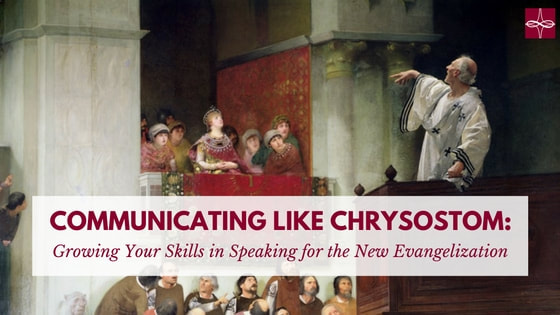
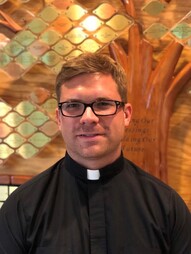
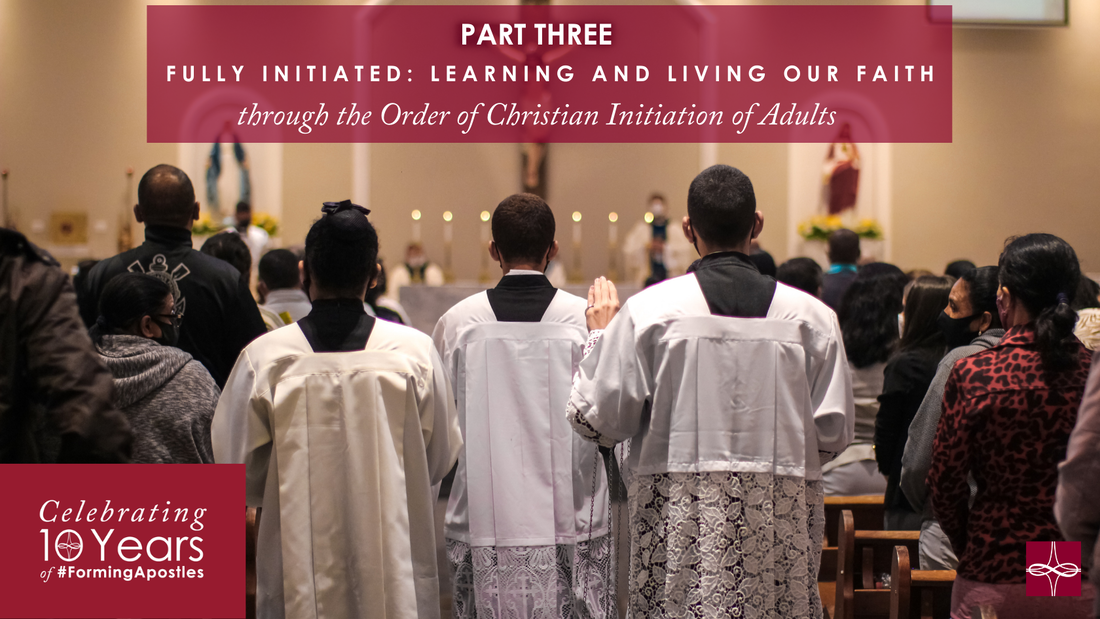
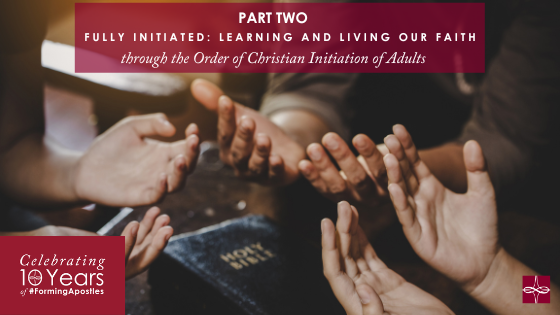
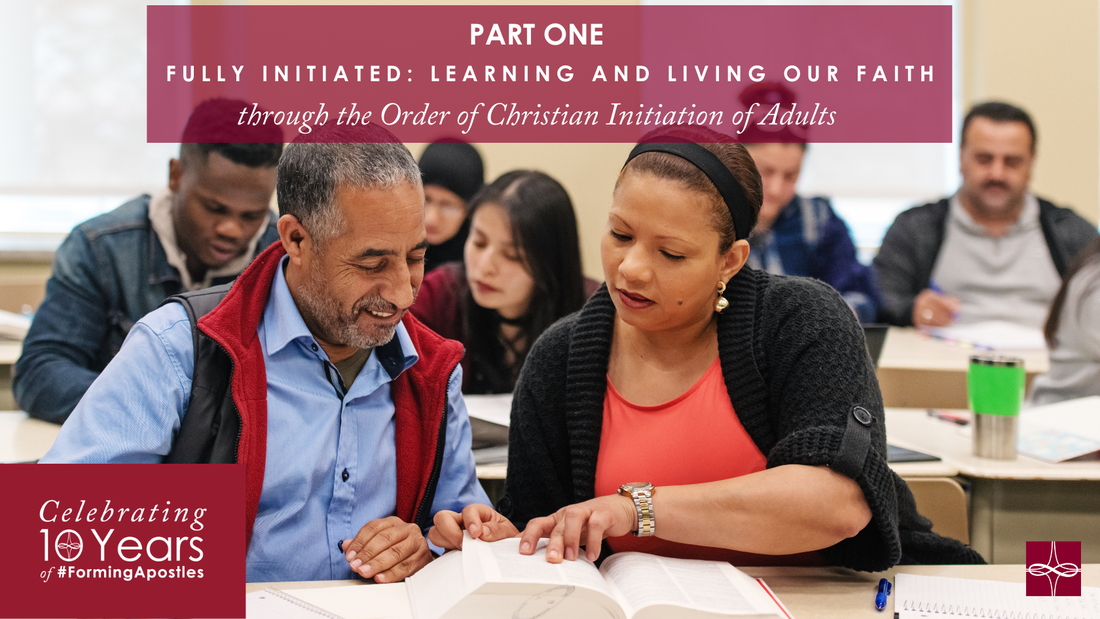
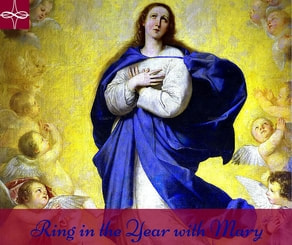
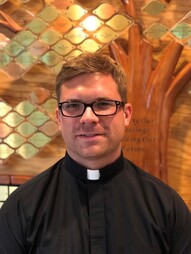
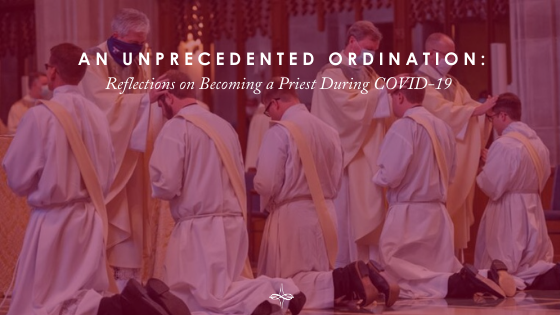
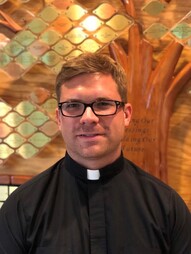
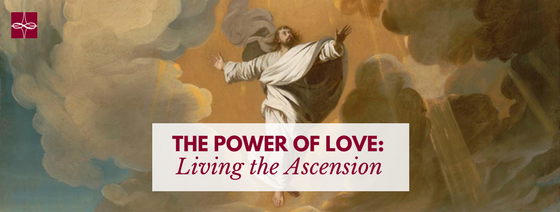



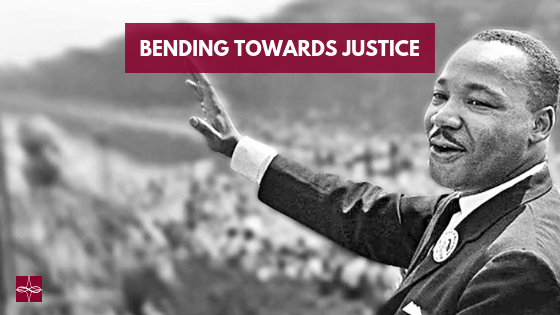

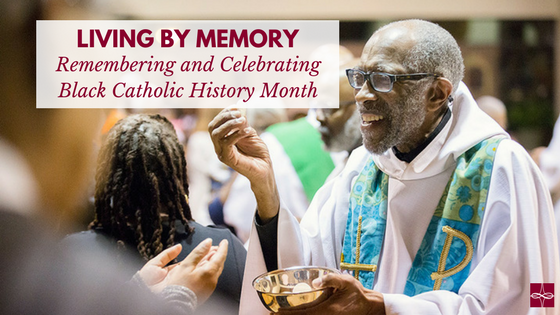

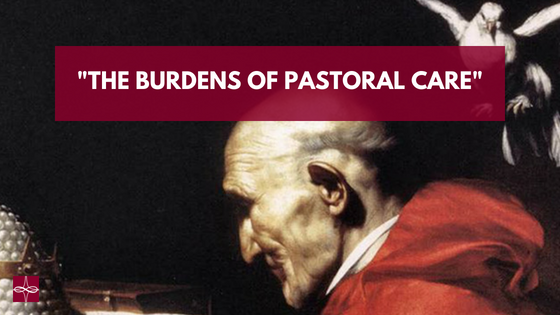

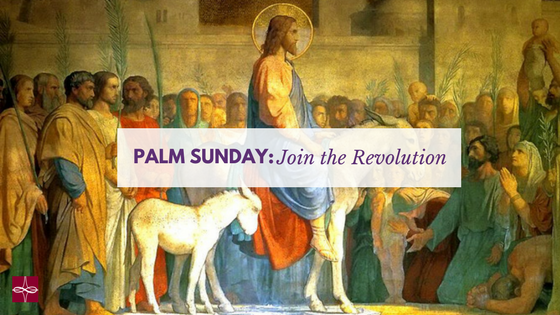

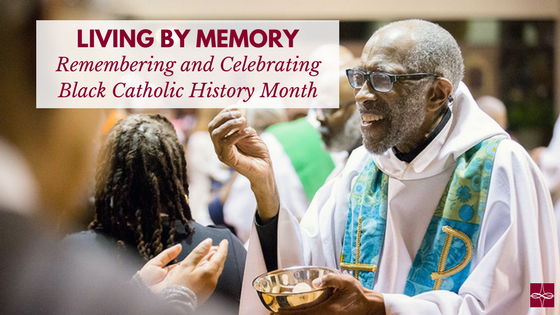
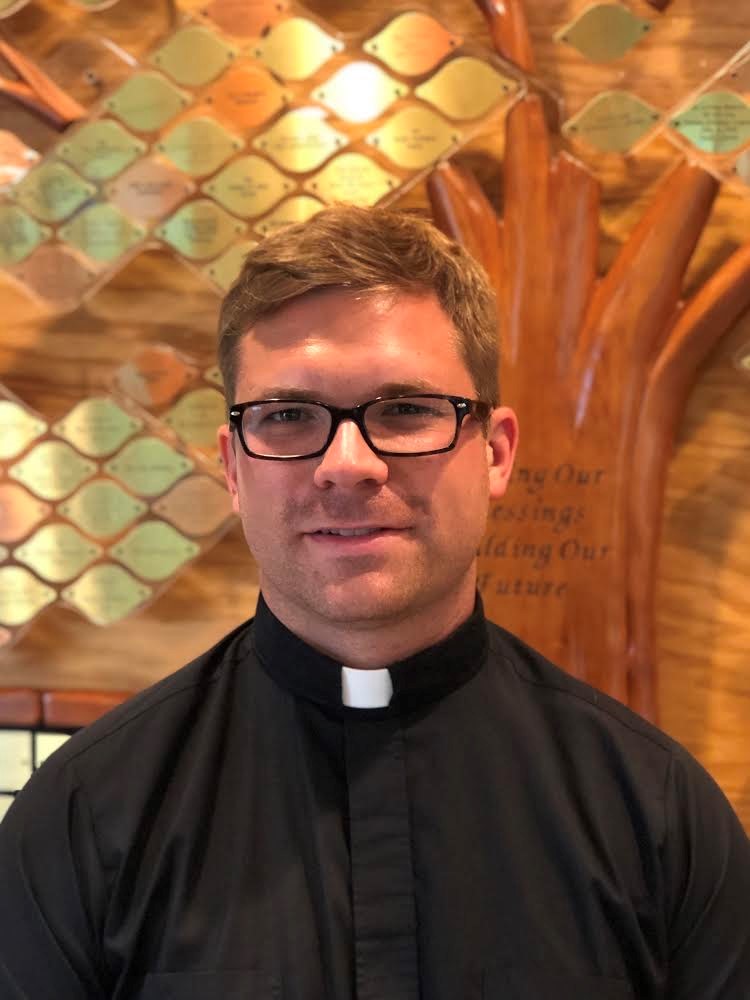
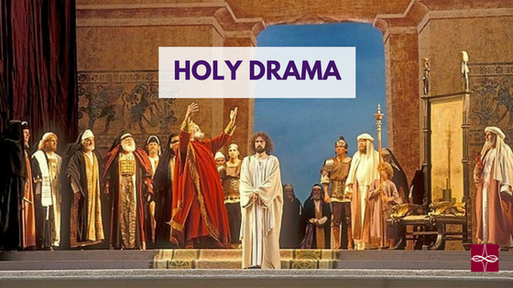

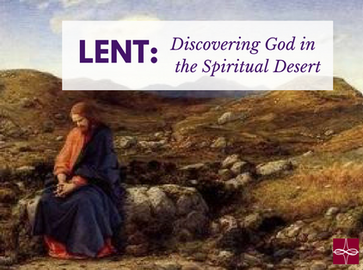

 RSS Feed
RSS Feed